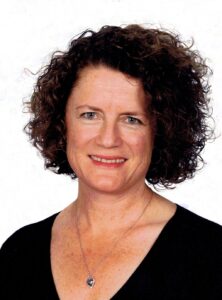
The patient’s perspective is best

Congratulations to Flinders’ End of Life Essentials team, whose Patient’s Perspective animation has been shortlisted for the World Health Organisation’s Health for All Film Festival (HAFF). Only 61 films out of a total of 940 entries from around the world have been shortlisted. The EOLE animation has been presented under Category 1: Universal Health Coverage. Check out the animation here, and use the hashtag #Film4Health on social media for the chance to have your comment featured at the HAFF virtual awards ceremony at the end of May.
Out of this world recognition for Space academics

Space Connect’s AusSpace 24: the Australian Space Awards recognises the leaders in this nation’s burgeoning Space Industry, and two Flinders staff have been nominated as finalists in the Academic of the Year Award – space archaeologist Associate Professor Alice Gorman, and space politics and policy expert Associate Professor Rodrigo Praino. Congratulations to both, and the winners will be announced at an awards ceremony on May 24.
Exploring family ties

Undertaking extensive research into her family history has led to College of Humanities and Social Sciences PhD Candidate Kendrea Rhodes having her personal journey published by the Public Record Office of Victoria. An edited composition from her unpublished honours thesis, Tracing ancestral voices explores Kendrea’s efforts sourcing and cross-checking century-old public records to find details of her grandfather’s family and uncover how he became a ward of the state. You can read the full article here.
Highlighting Indigenous data sovereignty

Luke Cantley from Flinders’ Social Work Innovation Research Living Space has been successful in publishing an article in the journal Australian Social Work, expressing the need for social work research to ensure that yarning is being used in a cultural appropriate way to ensure Indigenous data sovereignty. Mr Cantley writes that researchers need to ensure yarning is not conflated with focus groups, and highlights his experiences as an Aboriginal Researcher to explain how social work can best move forward in this space. You can read the article here.

